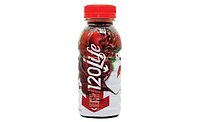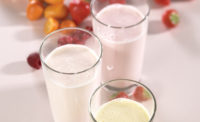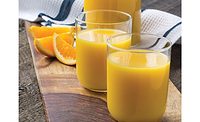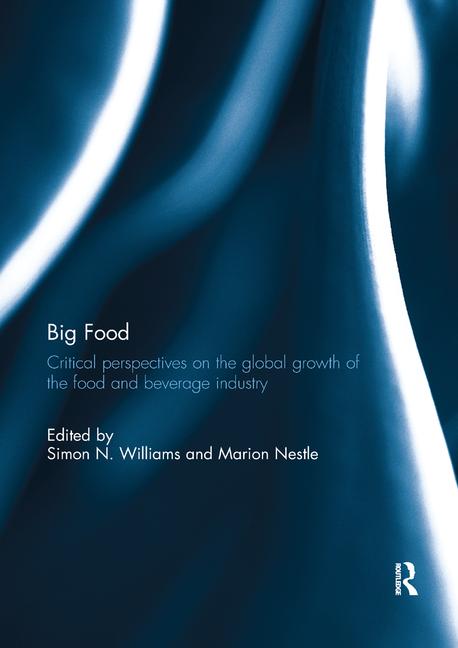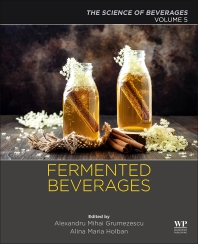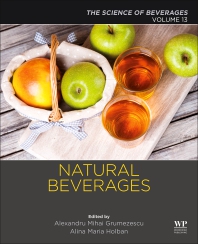Vitamins, minerals key to good health
Immunity takes center stage with vitamins D, K

Launched this past summer, Gist is a 25-calorie, prebiotic sparkling beverage. It contains 4 grams of prebiotic fiber from sunchokes, no sugar or added sweeteners, zero caffeine and is cold brewed with steeped herbs.
Images courtesy of Gist
The adage “Early to bed, early to rise makes a man healthy, wealthy and wise,” highlights two important things that consumers desperately want even more than money — sleep and good health. In fact, seven in 10 global consumers say they are actively seeking out products that support a healthy lifestyle, says Carla Saunders, senior marketing manager for high intensity sweeteners at Cargill, Wayzata, Minn.
“As we near the two-year mark for the global pandemic, we find consumers embracing a more all-encompassing view of health,” Saunders explains. “They’re looking for choices that address both their mental and physical condition, especially options that address immunity, hydration and functional energy. Infusing drinks with vitamins, minerals and other beneficial ingredients enables brands to deliver on that demand.
“Vitamins, minerals and other beneficial ingredients are finding their way into all kinds of beverages,” she continues. “Many brands have targeted functional waters and sports beverages for fortification, but you’ll also see these nutrients turn up in more unexpected places as category lines blur, from carbonated soft drinks to vitamin-enhanced teas.”
Milk is one of the biggest contributors of nutrients like vitamin D, potassium and vitamin A in consumers’ diets. However, plant-based milks do not contain these vitamins and minerals unless they also are fortified, so it’s critical to be aware of these different nutrient profiles and supplement products with vitamins and minerals accordingly, says Nathan Pratt, nutrition scientist for Kerry Taste & Nutrition, Beloit, Wis.
“Vitamin and mineral fortification is especially important for products created to support trends like plant-based and diets like keto,” Pratt says. “Any time you exclude or replace a food in the diet, you are also replacing the nutrition they provide. Ketogenic diets can be lacking in nutrients like fiber, B vitamins or vitamin C because these diets avoid foods that are rich in those nutrients (fruits, whole grains). Supplementing beverages targeted toward keto users with these nutrients can help them stay healthy while they are following the diet.”
Laurentia Guesman, business manager for food and supplement ingredients at AIDP Inc., City of Industry, Calif., notes that 2020 saw a large interest in utilizing vitamins and minerals to manage overall health.
“Manufacturers, especially in the food and beverage space, generally lag supplements due to long development times, so we are now starting to see these trends emerge in the beverage space,” she says. “Plant-based milk alternatives are increasingly looking to add value and differentiation in a space becoming more and more crowded. Low or no alcohol lifestyle beverages are quickly becoming one of the more popular innovation categories.”
As consumers thirst for functional beverages, better-for-you beverages have taken off, notes June Lin, vice president of global marketing, health and wellness at Chicago-based ADM. In fact, when surveyed in March, 44% of global consumers reported seeking fortified and functional foods and beverages, and because of COVID-19, 61% of consumers now are more conscious of the need to lead a healthy lifestyle.
“Health-conscious consumers expect their beverage purchases to be fortified with functional ingredients, including vitamins and minerals,” Lin says. “The increased demand for this beverage category provides great opportunity for additional vitamins and minerals to be incorporated into nutrient-dense drinks.”
Product labels featuring recognizable ingredients that are closer-to-nature also are high on consumers’ request list, with 69% of U.S. consumers saying simple, recognizable ingredients influence their purchasing decisions, Lin says.
To meet this need state, ADM offers a range of high-quality botanical extracts, standardized plant extracts and high-fruit and vegetable content powders. For instance, the company’s botanical extracts, such as acerola, beetroot and yerba mate, provide vitamins and antioxidants and are associated by consumers with trending wellness attributes.
Vitamins for immunity, functionality
Experts note that specific vitamins and minerals help support specific conditions. For instance, products that support immune health is a trending concern for many people with 87% of consumers in the United States indicating as such, Lin says. She notes that 78% of survey respondents specifically are interested in vitamin C, 76% in vitamin A and 65% in vitamin D. Vitamin E for immune support easily can be incorporated into beverages alongside ingredients from ADM’s botanical and plant extracts portfolio, she adds.
In addition to standard vitamins like D and C, and minerals like iron and magnesium, Josh Stewart, senior product manager for Premix Solutions at Chicago-based Glanbia Nutritionals, points to zinc, curcumin and elderberry as effective botanical ingredients.
The company offers an extensive functionally optimized nutrient portfolio, including vitamins, minerals, botanicals, amino acids, sweeteners, carbohydrates, fats (oils), fibers and acids, he adds.
AIDP’s Guesman notes that “immunity took center stage last year, specifically around research with vitamins D and K. We are also seeing increased popularity of beverages in mood and stress management, using magnesium.”
While vitamin K2 is not a “new” vitamin because it’s been an important player in the supplement industry for almost 20 years, Kate Quackenbush, communications director with NattoPharma at Gnosis by Lesaffre, highlights the importance of clinical testing of supplements to ensure safe and efficacious health benefits for adults and children.
Specifically, Quackenbush touts the Lille, France-based company’s MenaQ7 from NattoPharma, which has been studied in more than 20 human clinical trials. A newcomer to the beverage space, MenaQ7 promotes stronger bones and cardiovascular health and in turn healthier aging.
“Vitamin K2 as MK-7 is a vital nutrient for healthy aging,” Quackenbush explains. “By activating K-dependent proteins in the body, specifically osteocalcin and matrix Gla protein (MGP), vitamin K2 helps the body to utilize calcium properly. Once activated by K2, osteocalcin binds calcium to the bone mineral matrix, leading to stronger, denser bones. At the same time, activated MGP inhibits calcium from depositing in arteries and soft tissues where it causes them to stiffen, impeding healthy blood flow.
“So vitamin K2 essentially provides simultaneous support to bone and cardiovascular health, two core areas to consider when it comes to aging in a healthy way,” she continues. “And by including this important vitamin in fortified beverages makes it even more accessible for a wider audience.”
Noting that many foods and beverages are fortified with calcium and vitamin D, vitamin K2 is a vital companion nutrient that activates non-performing proteins to where they are needed — bones — and away from where they can harm — arteries and soft tissues, Quackenbush adds.
“Immunity took center stage last year, specifically around research with vitamins D and K. We are also seeing increased popularity of beverages in the mood and stress management, using magnesium.”
-- Laurentia Guesman, business manager for food and supplement ingredients at AIDP Inc.
AIDP’s Guesman concurs that the usage of vitamins D and K in combination for immune support and overall health are on the upswing. The company offers a highly stable form of vitamin K2 MK-7 — K2Vital — which is more than 99.7% bioactive and features a patent-pending double encapsulation to ensure a stable product throughout shelf life.
Postbiotics also are well-suited to many beverage applications, including chocolate-flavored dairy drinks, coffee and teas. Cargill offers its heat stable EpiCor postbiotic, which can handle varying pH levels and has a three-year shelf life from its manufacture date, says Cashtyn Lovan, marketing manager for Cargill’s health technologies business.
The ingredient has been clinically shown to support the immune system and positively modulate the gut microbiota, is backed by more than 75 years of fermentation expertise, and earned GRAS (Generally Recognized as Safe) notification from the FDA.
“EpiCor postbiotic is made through a natural, proprietary process that creates a unique fingerprint of metabolites,” Lovan says. “More than a dozen published studies support its health benefits.”
For brain health, AIDP recently partnered with Recess Beverages on its Mood line of sparkling water products. “They added Magtein, our highly bioavailable form of magnesium for brain support to their beverages,” Guesman says. “Magtein is the only form of magnesium to effectively cross the blood brain barrier. Consumers report a difference quickly making it an ideal ingredient for a functional beverage.”
AIDP also offers VegD3, a highly sustainable algae as a source of vitamin D3, and notes that this vegan fortification alternative has been immensely popular with juice and plant-based companies.
Energy awaits thru nutrient optimization
During the sluggish, gray winter months, thiamine (vitamin B1) helps the body use carbohydrates as energy and helps with heart, nerve and muscle function, while riboflavin (vitamin B2) helps turn food into energy and helps in red blood cell production, says Kelcey Pusateri, technologist for systems and ingredient solutions for technical service at Ingredion Inc., Westchester, Ill.
B vitamins are popular in the marketplace due to the claims of providing energy, notes Ingredion’s Rich Stewart, project leader for sweetener tech services.
Yet, employing nutrient optimization to a wide range of beverage applications also can present challenges for beverage-makers, Stewart says.
Stewart points out that when adding vitamins and minerals to any beverage, processing temperatures and times need to be taken into account to ensure viability. Depending on the type of vitamins and minerals being used, different sensitivities of degradation should be considered
Because the taste of any beverage is crucial for repeat purchase, Stewart suggests that masking agents might be necessary. “These materials also have an inherent effect on the taste of the finished product,” he explains. “Most of the time the minerals and vitamins will contribute to a bitter or powdery sensation when added, resulting in the need for masking, or optimization of use levels.”
Ingredient companies are not only assisting with vitamin and mineral fortification, but are coming up with innovative solutions to address the formulation requirements of today’s beverage applications.
For instance, Glanbia offers its Nutrashield portfolio of Functionally Optimized Nutrients, which are encapsulated to aid with challenges such as stability, flavor, color and bioavailability. “This technology makes formulation much simpler and can significantly reduce overage requirements, improve flavor and ease in the manufacturing process,” Stewart says.
Capturing shoppers’ attention
Experts note that brands on their product development journey must continue to keep close tabs on trends and innovate so that the functional beverages they produce help consumers look and feel better.
Transparency is important, as 73% of global consumers agree that they feel more positively about companies that are transparent about where and how products were made, raised or grown, explains Micah Greenhill, ADM’s beverage marketing director.
“Drinks that tout specific sourcing for vitamins, such as vitamin C from acerola extract and vitamin A from carrot extract, will fare well on store shelves and help ensure return shopper purchase,” he says. “RTD teas with consumer-associated health halos as well as flavored waters that boast additional vitamin and mineral inclusion are ripe for growth. Additionally, carbonated soft drinks are beginning to break into this space as these product developers start dabbling in low and no sugar formulations that also incorporate vitamins and minerals.”
Sugar reduction in products and maintaining taste also should stay at the forefront, Cargill’s Saunders advises.
“The big challenge in the fortified-beverage space is delivering on consumer desires for sugar reduction, yet still creating an appealing flavor profile. As consumer tastes shift to products with less sweet profiles, it becomes harder to mask the off-flavors commonly associated with vitamins and minerals, she says. “Brands will need to find the right balance, delivering beverages with health-promoting ingredients, sugar reduction and great taste.”
Looking for a reprint of this article?
From high-res PDFs to custom plaques, order your copy today!





